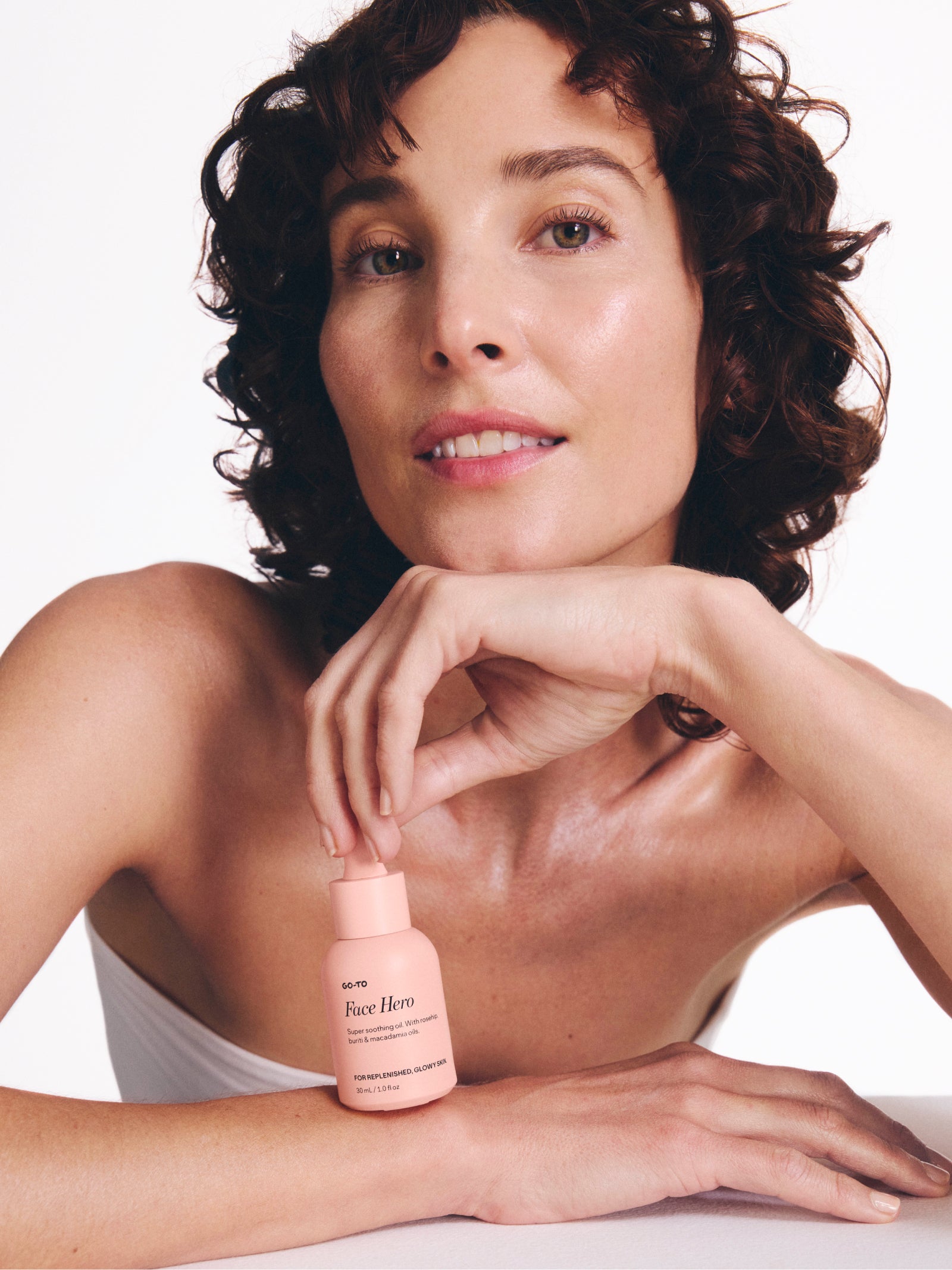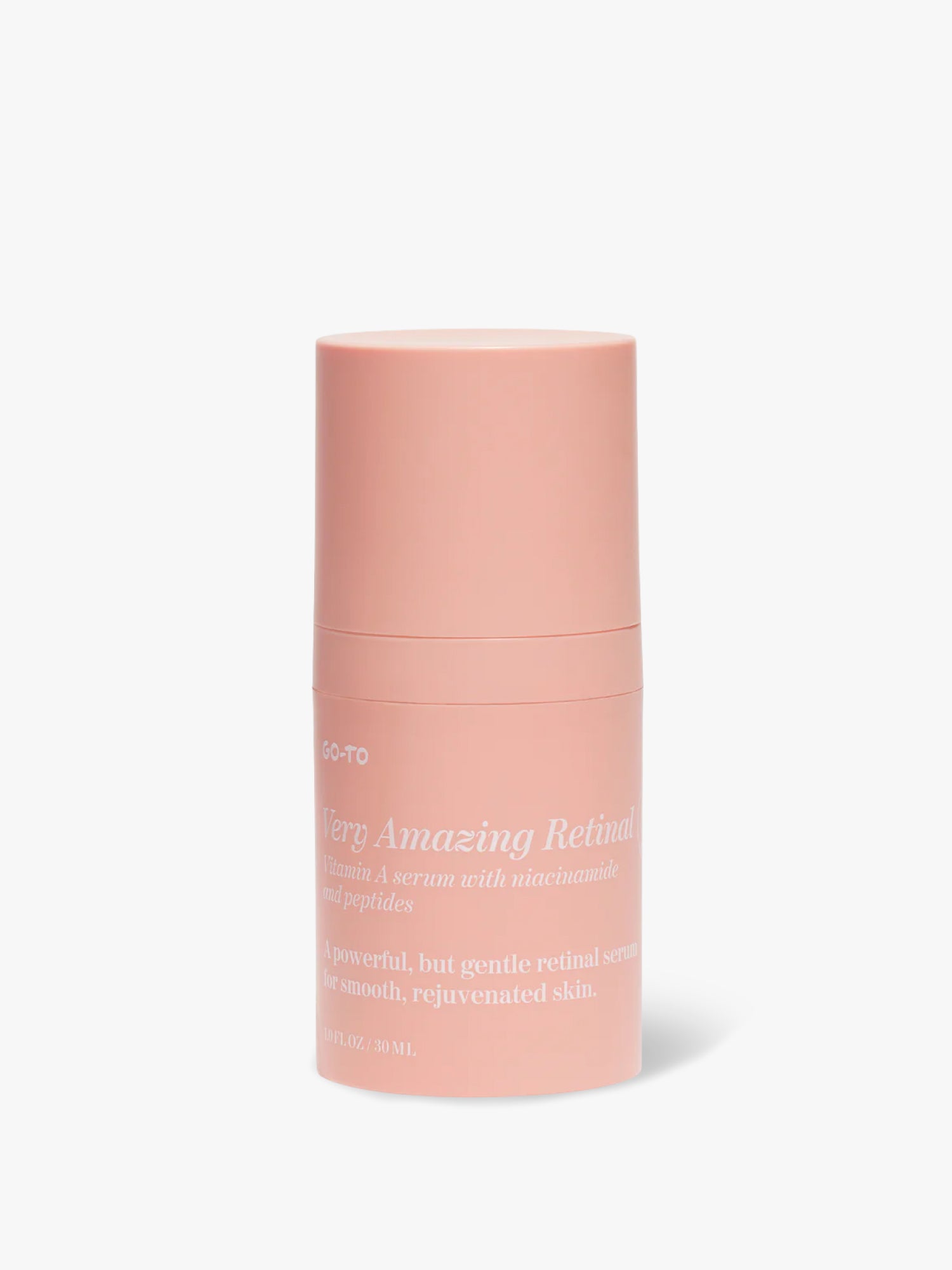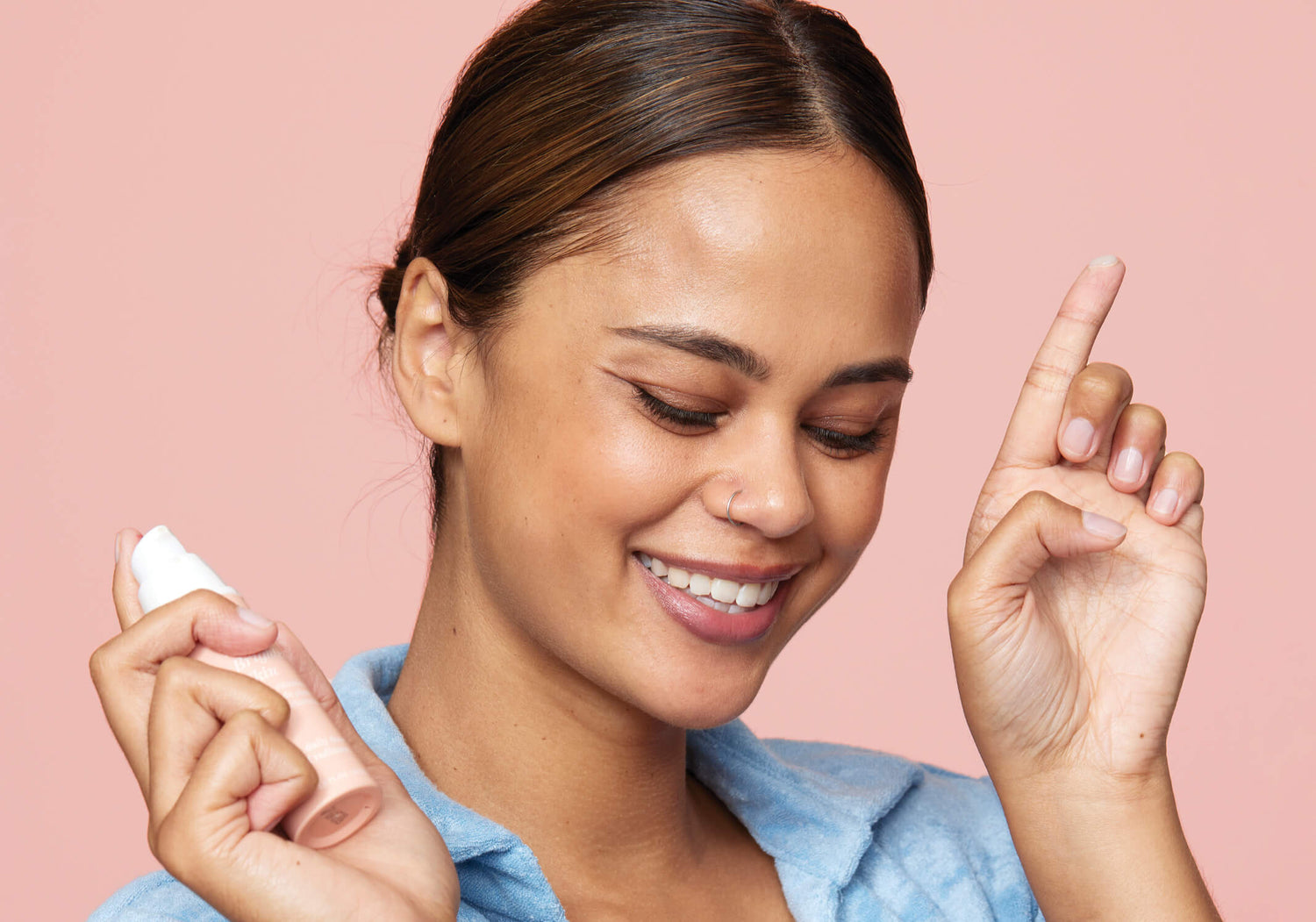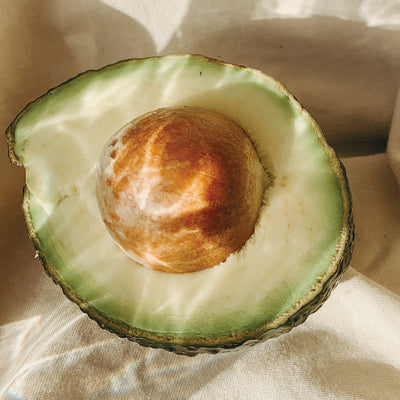While some skincare ingredients need a thorough introduction, I don’t think Vitamin C is one of them. It’s honestly an ingredient everybody talks about and you’ve probably tried before. In fact, I’d say there’s an 80% chance that it is already sitting on your face.
It’s a very handy antioxidant to have in your skincare toolkit. However, while it is well known, it comes in many different forms (some of which can be very unstable) so let’s break it down a little so we’re not confused.
What is Vitamin C and how does it work?
First up, Vitamin C is a powerful antioxidant which helps us fight free radical damage. Free radical damage comes from the environment, pollution, the sun, cigarette smoke etc… all of which, can lead to premature ageing, inflammation and even sun spots. However, studies prove that using antioxidants can help prevent this unnecessary oxidative damage happening in the first place. (Hence why we love them so much.) Vitamin C helps to protect healthy stable molecules from being attacked by unstable molecules that then damage healthy cells. Make sense? Good!
Vitamin C has also been proven to even skin tone and boost collagen production, (another good reason why it's Little Miss Popular). It's pure form L-Ascorbic Acid has been studied extensively, but there are also several derivatives of Vitamin C often used in skincare such as sodium ascorbyl phosphate, L-ascorbate, and magnesium ascorbyl phosphate. Sodium ascorbyl phosphate in particular is known for being a little gentler and more stable while still being very beneficial, which makes it a great option for all skin types.
L-ascorbic acid is very unstable and easily degrades when exposed to light/oxygen so it’s packaging is very important. And while it does provide mega benefits to the skin it can be irritating to some. Moral of the story: There are many different Vitamin C options to suit your skin.
How can Vitamin C benefit the skin?
Um, what doesn’t Vitamin C do?
1. Protects against free radical damage: Vitamin C scavenges free radicals to protect your skin. Again, like a shield for your face that prevents damage to healthy cells that can lead to premature ageing.
2. Even skin tone/lighten dark spots: derivatives of Vitamin C are often formulated with other skin lightening ingredients which make them great for managing pigmentation or dark spots. However it’s also been shown to decrease melanin formation and reduce pigment on its own.
3. Boosts collagen production: Vitamin C is also super beneficial for collagen synthesis, which means it can stimulate collagen production. (And who doesn’t want to stimulate collagen production?) (..Anyone? Didn't think so.)
And it doesn't stop there. Certain Vitamin C derivatives are also able to offer other benefits for your skin as well. The non-irritating sodium ascorbyl phosphate, has also been proven to be anti-microbial meaning it can be a great option for acne-prone skin.
Which skin types should you be using with Vitamin C?
Depending on which type of Vitamin C you go for it is a great ingredient for most skin types. However, in higher concentrations acne/oily prone, or sensitive skin types may find it a little irritating, so introduce it slowly and keep an eye on how your skin responds. Whether you’re using l-ascorbic acid or one of its derivatives, if you do experience irritation, stop using it and check in with a trusted skin specialist.
How to add Vitamin C into your routine
Vitamin C is best used in the morning after cleansing and before your moisturiser. Your skin is most susceptible to being attacked by free radical damage during the day so that is when it is best applied and how I always recommend it be used.
And if you forget and apply it at night? That’s totally fine too. Your skin will be fine and it will still get all of the benefits (however morning is my preference).
Ingredients to use and avoid with Vitamin C
There aren't many ingredients you'll need to “avoid” using with Vitamin C. However, if you try and layer Vitamin C and retinol, the pH level of Vitamin C increases and the pH level of retinol decreases which will prevent them from working as well as they could, so it's best to avoid where possible.
If you keep it for use in the morning it very easily combines with other favourites such as Vitamin B or a hyaluronic acid.
And while AHAs and Vitamin C are fine together, to make things less confusing for everyone, it's a good idea to keep your Vitamin C for the AM and chemical exfoliants for the PM to make things super simple.















Comments